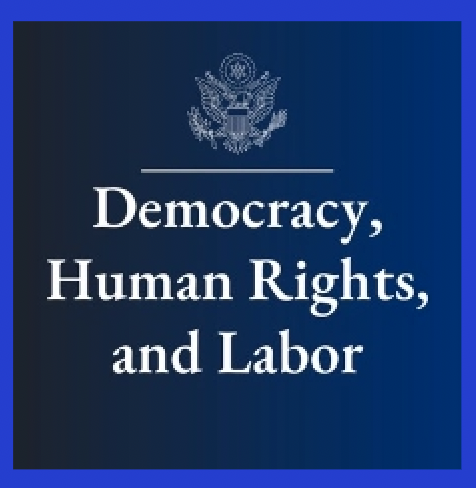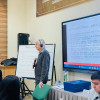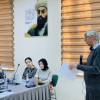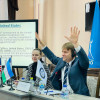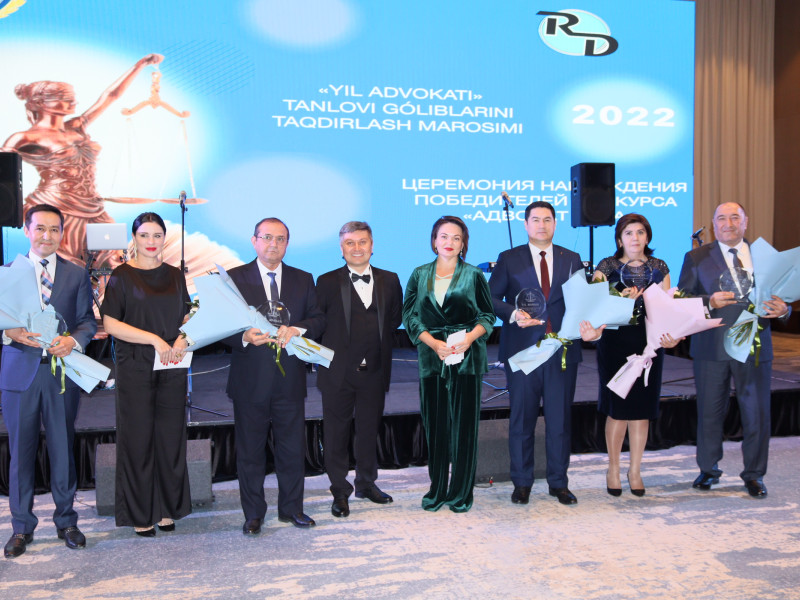
Chamber of Advocates of Uzbekistan and International NGO Regional Dialogue held a “Lawyer of the Year-2022” competition among Uzbekistani lawyers with the support of the US State Department DRL Bureau grant.
This competition recognizes the professional skills and achievements of lawyers and raises public awareness of the importance of this profession.
The winners competed in five nominations: Professional Excellence, Successful Protection of Human Rights, Rising Star, Mentorship, and Activism in Legal Reforms.
The winners:
- Feruza Jalilova - "Successful Protection of Human Rights" nomination
- Panji Makhmanazarov – “Professional Excellence” nomination
- Farkhod Ramanov – “Rising Star” nomination
- Zafar Tairov – “Mentorship” nomination
- Zafar Tukhtashov – “Activism in Legal Reforms” nomination
Regional Dialogue interviewed each lawyer to learn more about them and highlight their success stories.
Feruza Jalilova –"Lawyer of the Year-2022" winner in the nomination of "Successful Protection of Human Rights"

- Why do you think you were selected as a winner?
I thought about why I became a lawyer when applying for the competition. When I was a student, a female lawyer visited our university and made a great impression on me. After graduating from the university, my teacher Zulfia Umarova brought me to the Collegium of Advocates of the Namangan Region. Following that, Akmal Mamajonov, the Chairman of the Commission, hired me as a trainee lawyer and appointed Abdusalam Yuldashev as my supervisor. My mentors took me under their wing and trained me in the legal profession. They assigned me my first job, in which a young man was accused of religious extremism and sentenced to 6 years in prison for distributing leaflets. During that time, I learned how to write a complaint, which was returned by Qurbanoy Karimova marked with a red pen, showing my mistakes. That was a lesson to never stop fighting. The case was presented to the Supreme Court and the punishment was reduced to 3 years. That gave me the strength to continue my legal career. I think the reason why I won this competition is the encouragement of my teachers and mentors, the trust of those under my protection, and my hard work.
I chose the profession of a lawyer because of the freedom that the lawyer has and the ability to touch people’s lives. All the struggles you experienced are worth it when you receive a word of gratitude from the person you were protecting. A lawyer should also be a psychologist. They should know how to talk to people and understand that each person is a world of their own. If you can get into that person's inner world, your job will be much easier. Looking at my achievements now, I think my ability to understand people contributed to them. - What are you most proud of?
I am proud of my profession. I remember a case, where the person under my protection was charged with part 2 of Article 97 of the Criminal Code. The Namangan Regional Court sentenced him to 15 years of imprisonment. During the preliminary investigation and trial, the defendant was not assigned a psychological examination. Based on this, the Supreme Court sent the case to the Namangan Region for a new appeal. The appellate instance of the Namangan Regional Court reclassified his actions to Article 98 of the Criminal Code and released him from punishment based on the amnesty act. At that time, the acquittal was considered a great achievement for a lawyer. I consider this the greatest achievement of my career. It is no exaggeration to say that the result of this criminal case made me famous as a lawyer. - Why do you do your job, what motivates you?
The biggest motivation is the people’s gratefulness. I feel strongly motivated when people thank me for my work. I feel strong when people appreciate my help and support. - What is the most challenging part of your job?
To answer this, I would like to tell you about one of the most difficult cases in my career. In the past, there were many cases where the accused was not provided legal aid in due time and additional charges were added. By the time the accused had a chance to speak with a lawyer, he would have confessed to crimes he did not commit. This made the lawyer's job much more difficult. Another example is that in the past, I would have to wander around the detention centers to look for the person under my protection. There was even a situation when a person under my protection was brought to administrative responsibility and sentenced to 15 days in prison, where they treated her badly. When I wanted to meet with her, the NSS strongly resisted and even went so far as to question my license. In the end, this girl was released from responsibility, but this case left a long-lasting impression. - What is your biggest professional achievement or success that you would like people to know about?
It is a tough question because I don’t showcase my achievements. I have a motto: let your actions speak for themselves. - How about gender issues in your profession? Is there a gender inequality issue in this profession?
I wouldn’t say that there is a big difference. This profession gives equal opportunities. Sometimes female lawyers have more privileges because women are more empathetic. That’s the reason why many people choose to work with female lawyers. This profession empowers women. - How does your work impact society in your opinion?
I also work at the regional office of Chamber of Advocates in Namangan, and we engage in many Pro-Bono projects. I think that is how I contribute to society. One of the examples is that I helped many law enforcement officers rehabilitate in their professional and personal life, and I am proud of that. I think there should be more efforts made to recognize the work of lawyers in our society.
Zafar Tairov –"Lawyer of the Year-2022" winner in the nomination of “Mentorship”
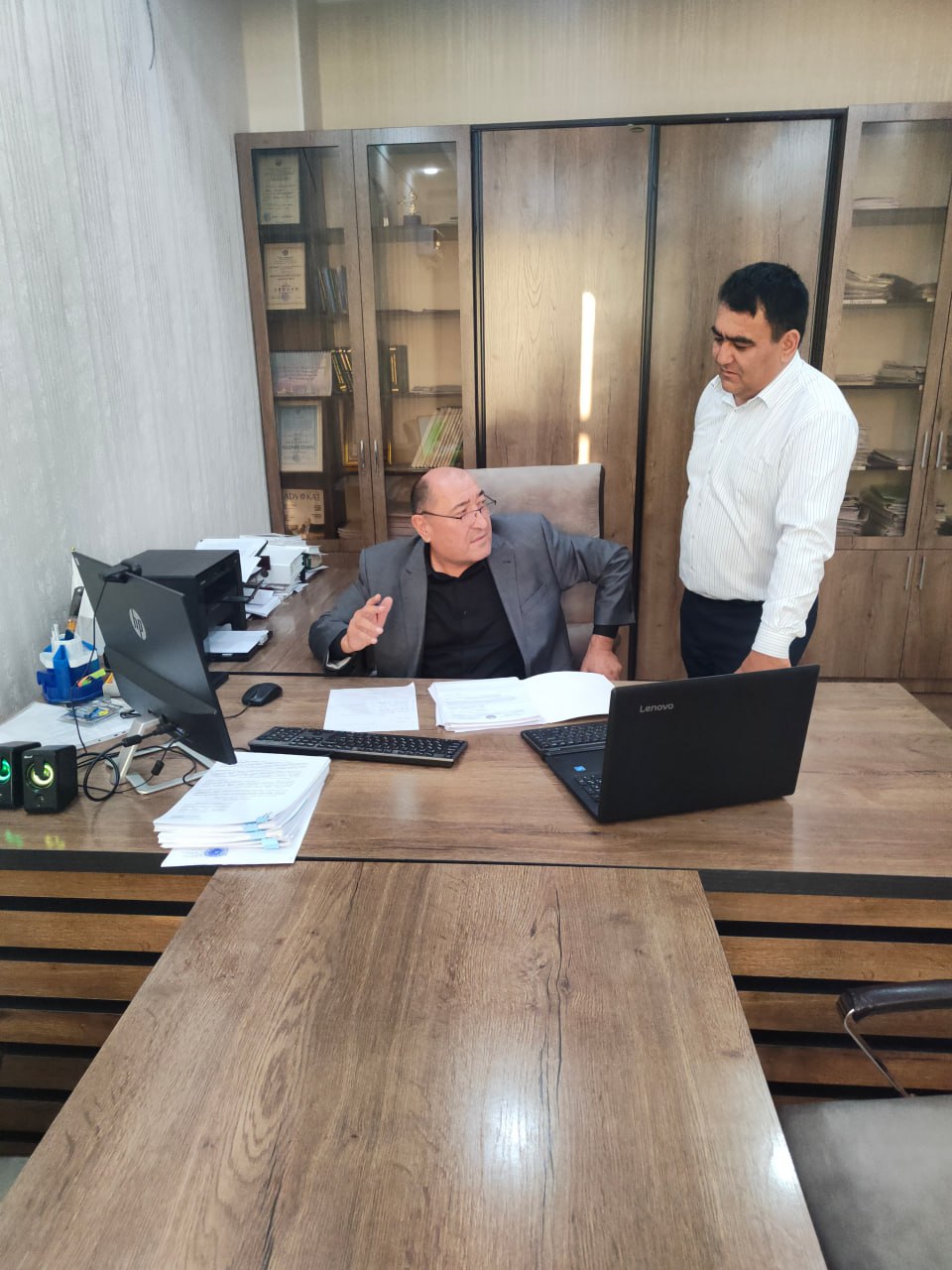
- Why do you think you were selected as a winner?
I participated in two nominations, Mentorship and Human Rights Protection. I think I qualified for both nominations thanks to my background in winning cases on human rights protection. As for the Mentorship nomination, I was training five interns at the time of applying for the competition. Now I have six interns who passed the tests successfully and are currently working as lawyers. I equipped them with all the necessary skills required in this field.
During my career, I worked as a lawyer in almost all offices in the legal field, that is, in companies and state-owned enterprises, as a consultant in the Department of Justice, as an investigator in district, regional, and republican prosecutor's offices, as a district and regional court judge, as the chairman of the collegium, acting as the chairman of the regional court, and in leadership positions in the regional department of justice. Regardless of where and in what position I am, I always try to give knowledge about the practice to the employees around me.
I am grateful that they chose me and gave me this award in the category of Mentorship. I will try to continue this work in the future. - Why did you choose to become a lawyer?
As I mentioned earlier, I have worked in almost all offices in the field of law, trying to fully absorb the experiences that each one of them can offer.
Whatever office I went to and worked at, I worked at my own will. When I was a judge, I told my colleagues that I would one day become a lawyer. I am proud of my work as a lawyer because I believe that as a lawyer, I can help people the most. In today's times, every case needs the help of lawyers to get justice. We are lawyers who work with people and help people. - What are you most proud of?
In my career as a lawyer, I have achieved the acquittal of 179 defendants and convicts by February 2023, and I am proud of that. Among them are the acquittals issued based on the decisions of the Supreme Court. However, what makes me the proudest is restoring the dignity of those under my protection and making them happy. If any lawyer achieves an acquittal of a citizen under their protection, they will certainly be proud of their work, which will encourage them to work harder, work on themselves, analyze newly adopted laws, provide qualified legal assistance to citizens, and make their results even better. - What is the most challenging part of your job?
One of the current problems in the judicial system is the reduction of cassation appeal procedures in the lower court. As a result, the Supreme Court has to review more cases. I think the Supreme Court should review less cases, and issue more executive decisions on the review of cases and the application of law in the lower courts. However, along with difficulties, positive changes are taking place in the system. For example, due to the pandemic, the whole world had to change. The widespread use of digitization has made obtaining a lawyer's license and many other procedures much easier. The Chamber of Advocates has been providing great assistance in this regard. At the same time, the entire judicial system had to adapt to this new reality. I think it was a positive change. The problems of the pandemic prompted us to digitize our system and use digital tools. Courtrooms have been equipped with video conference connections. We quickly acquired the necessary skills and began conducting court proceedings online. Now I have all the necessary software and tools on my work computer, laptop, and even my mobile phone. I can conduct court proceedings online from any region or abroad. This has become an opportunity for lawyers, not an obstacle. It has also become much easier for people to approach a lawyer and participate in court proceedings. - How does your work impact society in your opinion? Is there a specific example?
I think that lawyers have a good impact on society as they provide competent legal assistance to people whose rights have been violated and who don’t know what to do.
For example, a person under my protection was prosecuted in a criminal case, but based on the complaint and additional documents, the courts made a fair decision to dismiss the case and acquit them. They were rehabilitated and began leading agricultural clusters, employing more than 5,000 people and making a great contribution to the economy of districts and regions, in industry, agriculture, and production, overall improving the quality of life. - Why did you apply to this competition?
A few years ago, I suggested that there should be a ranking among lawyers, so that there would be healthy competition, and most importantly, lawyers would work more on themselves. In 2016, my law firm was named the best in the country. The reason I applied for the contest again this year is that I believe a person shouldn’t stop improving but should continue to achieve success.
Farkhod Ramanov –"Lawyer of the Year-2022" winner in the nomination of “Rising Star”
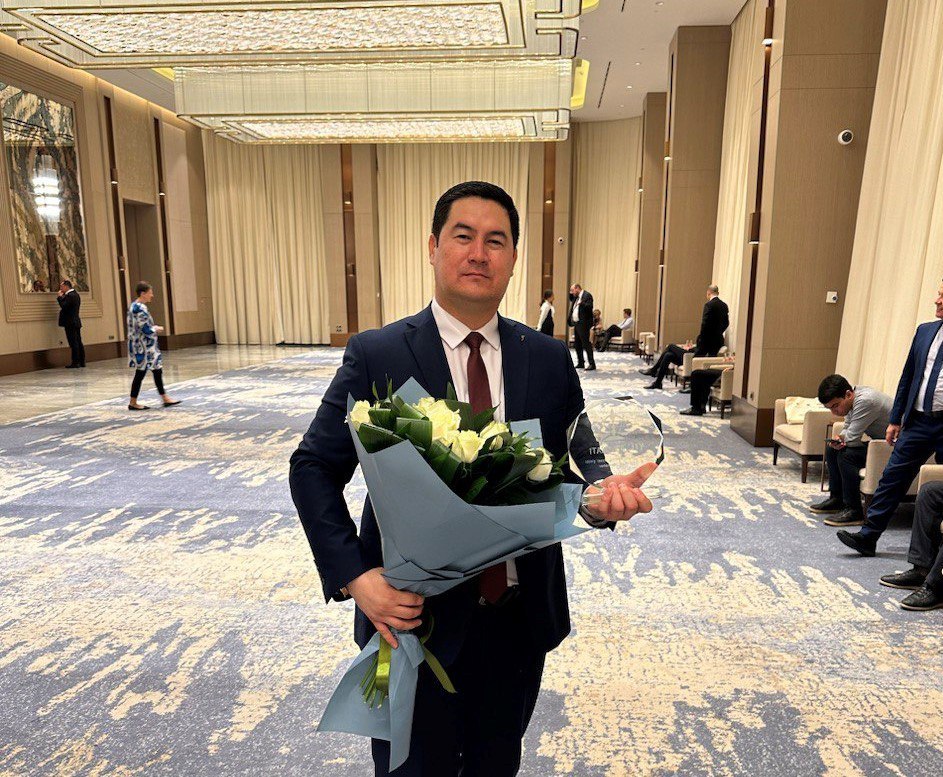
- Why do you think you were selected as a winner? Why in this nomination?
The average age of lawyers in Uzbekistan is high and I believe that our country needs young lawyers. I want people's confidence in lawyers to increase, for people to respect the legal profession, and not be seen as "fraudsters", but as people who fight for the interests of the client.
When I meet with students of the Faculty of Law, I give them information about the legal profession and explain why it is suitable for young people. I am often invited there and I have been closely cooperating with and guiding young people in the legal profession. I also work with the "Youth Agency" and provide free legal assistance to young entrepreneurs. I believe that is the reason I have been selected as the winner. - Why did you choose to become a lawyer?
I started my journey as a lawyer in 2016, after working at the Ministry of Justice. What attracted me most to the profession was the freedom. You set your schedule and decide which jobs to take and which defense strategies to use. In my opinion, being a lawyer offers more professional independence than any other legal profession. It makes me fulfilled and confident. I enjoy further developing my knowledge and skills. Through this, I feel that I can have a positive impact on those around me and on society. I know that this is my contribution to society. I could call it my “IKIGAI” - a Japanese concept with 4 main elements: what I like to do, why I'm useful, what I'm good at, and what I can do to make money. - What are you most proud of?
I am proud of the acquittals I have achieved. I am proud to see people get out of jail and move on with their lives with my legal help. I’m particularly proud of the case about the rector and vice-rector of the Nukus State Pedagogical Institute. In 2018, he was indicted and in 2021, he was acquitted and reinstated. I participated in this case as a lawyer. It feels like giving life back to the person and his family. - Why do you do your job, what motivates you?
What motivates me the most is the trust of my loved ones and those under my protection. My clients trust me with their life and future. In addition, knowing that I am contributing to the development of the legal system at the national level gives me additional motivation. - What is the most challenging part of your job?
One of the main challenges is dealing with government officials and investigators who are not fully qualified or do not understand the procedures. Because of such people, the person under my protection may stay in prison for a long time, or the work may not be completed.
The second problem I want to highlight is the lack of trust in lawyers among people. Young lawyers are working to restore confidence in our profession and encouraging more young people to join the legal profession would improve that as well as our performance. - What is your biggest professional achievement or success that you would like people to know about?
As a lawyer, I focus on two main areas of law - business law and human rights protection. I have achieved a lot, for example, I was able to solve a tax problem for the benefit of several businesses and got 8 acquittals. - How does your work impact society in your opinion? Is there a specific example?
I worked with vulnerable youth that did not have their educational fees covered by their guardians or the government. I was able to resolve the matter in the best interest of the children. I also helped more than 50 entrepreneurs who set up small businesses (e. g. trading stores) with getting the necessary documents to continue their activities. - Why did you apply to this competition?
Because I have attained achievements that should be seen by others and recognized as useful for society. I applied because I felt that I was a strong candidate.
Zafar Tukhtashov –"Lawyer of the Year-2022" winner in the nomination of “Activism in Legal Reforms”
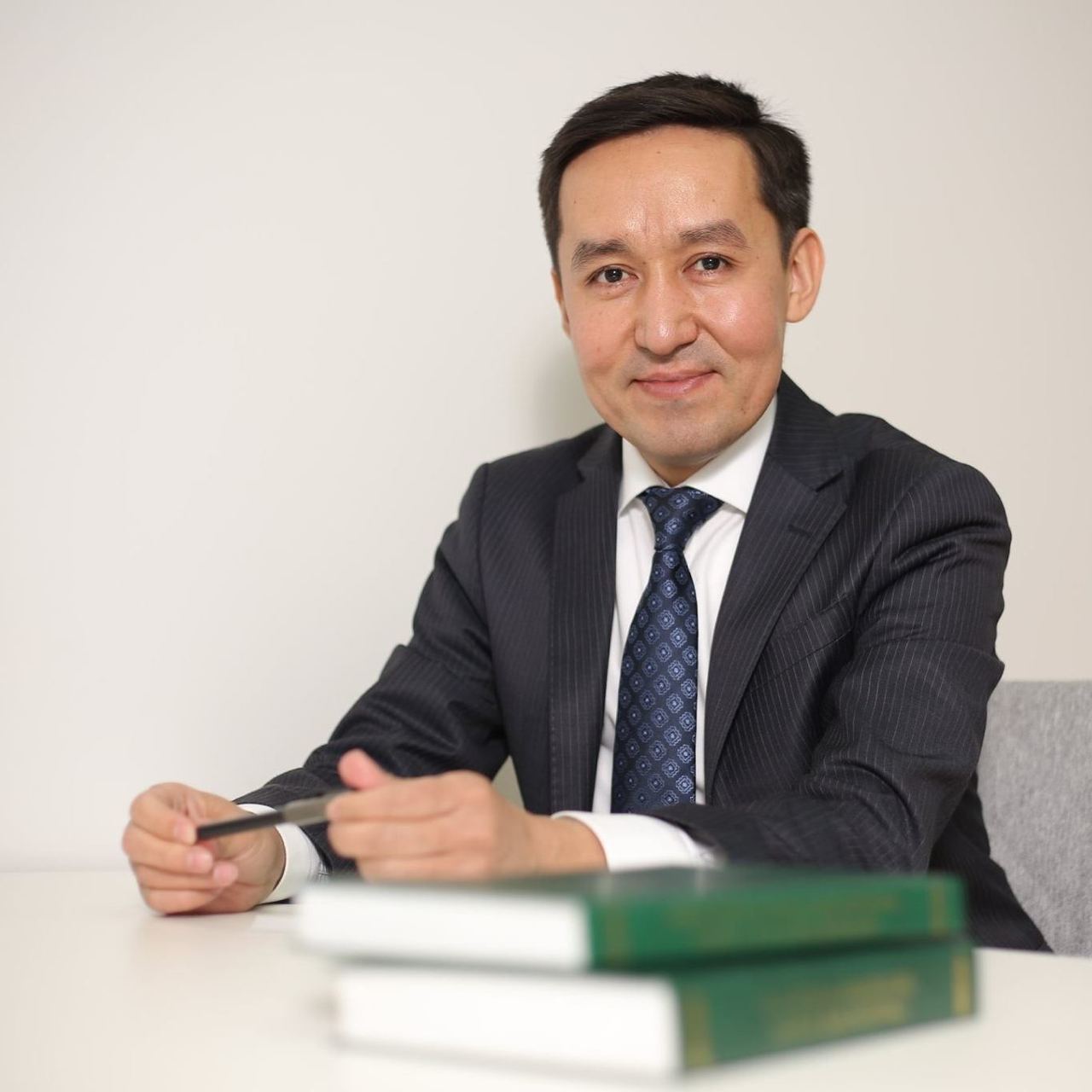
- Why do you think you were selected as a winner?
There is a perception among the public and even among lawyers that lawyers only protect the rights of the client. However, the role and purpose of lawyers are bigger than that. Lawyers should also give opinions on issues of law enforcement and address issues in the law.
I believe that this award is a recognition of not only my work but also the efforts of my entire team. Our law firm consists of 4 attorneys and more than 10 interns and assistants. We usually sit together on cases that have commonalities and discuss the systemic legal problems connected to them and what recommendations we can make to overcome them. - Why do you do your job?
In 2008, I graduated from the Institute of Law. When I was getting my lawyer's license, they told me that I was assigned to the prosecutor's office. I turned it down and got my law license a week after graduation. Why? Because I like the independence, freedom, choosing and working on the cases I chose, and achieving positive results – that brings me the greatest joy. After working for ten years, I also wanted to become a judge. I was appointed as a judge in 2016 and worked in this position for 3 years. But I realized that my passion is being a lawyer, so I returned to the bar.
I think that the opinion of lawyers as unimportant is wrong. I imagine a lawyer with the law behind him as an indomitable force and a strong fortress. But it is necessary to realize this power and use it correctly. - Why did you choose to be a lawyer?
I come from a family of lawyers. My father is a judge and other members of my family also work in the legal field. As fate would have it, I worked as a paralegal when I was a student and saw how interesting this profession can be. I liked that lawyers work independently, choose their own work schedules, and deal with new legal problems daily. - What are you most proud of?
I am proud of my work. Although our law firm is very young, it has 15 employees. When hiring, we are always looking for young professionals, and the reason for this is their passion for work. We want them to develop an interest in the legal profession and grow in this field. Sometimes we lose financial income because of this. However, it has a wider impact and a deeper meaning than just making money. - What motivates you?
I am encouraged by the interest of young people in the legal profession. It is difficult for young people to get a job after university because they lack experience and not a lot of people want to hire them. We do the opposite. We hire young people with no experience, mentor them, and provide them with the knowledge and skills to become good lawyers. The main thing that motivates me is to see young professionals grow in this profession and feel that I can make a positive impact on our society. - What is the most challenging part of your job?
Advocacy has many challenges. But if you love what you do, you will overcome them and not give up. Nobody likes dealing with bureaucracy. Sometimes inappropriate behavior of government officials (for example, refusal to share information) seriously complicates our work. Another challenge is that it takes a long time to go through certain procedures, which also requires a lot of patience. I believe that wasting a lot of time in solving cases is one of the biggest challenges. - What is your biggest professional achievement or success that you would like people to know about? How does your work impact society in your opinion? Is there a specific example?
One prominent American jurist described lawyers as the "foot soldiers of the Constitution." Indeed, these professionals face challenges every day in their work. Many people do not know that lawyers are required to show not only knowledge and determination but sometimes also the courage to ensure the protection of fiduciaries. Many of the problems holding back our progress are caused by loopholes and contradictions in legislation. It is up to the lawyers to raise the issue of their timely elimination before the authorities. We are supporters of progress and always try to contribute to this process. In this regard, it is commendable that the nomination "Activism in legal reforms" was included in the competition among lawyers. I express my deep gratitude to the contest organizers who appreciated my humble work in this regard. The fact that I was recognized as "Lawyer of the Year" in this nomination will probably remain the brightest of my professional achievements.
Panji Makhmanazarov –"Lawyer of the Year-2022" winner in the nomination of “Professional Excellence”
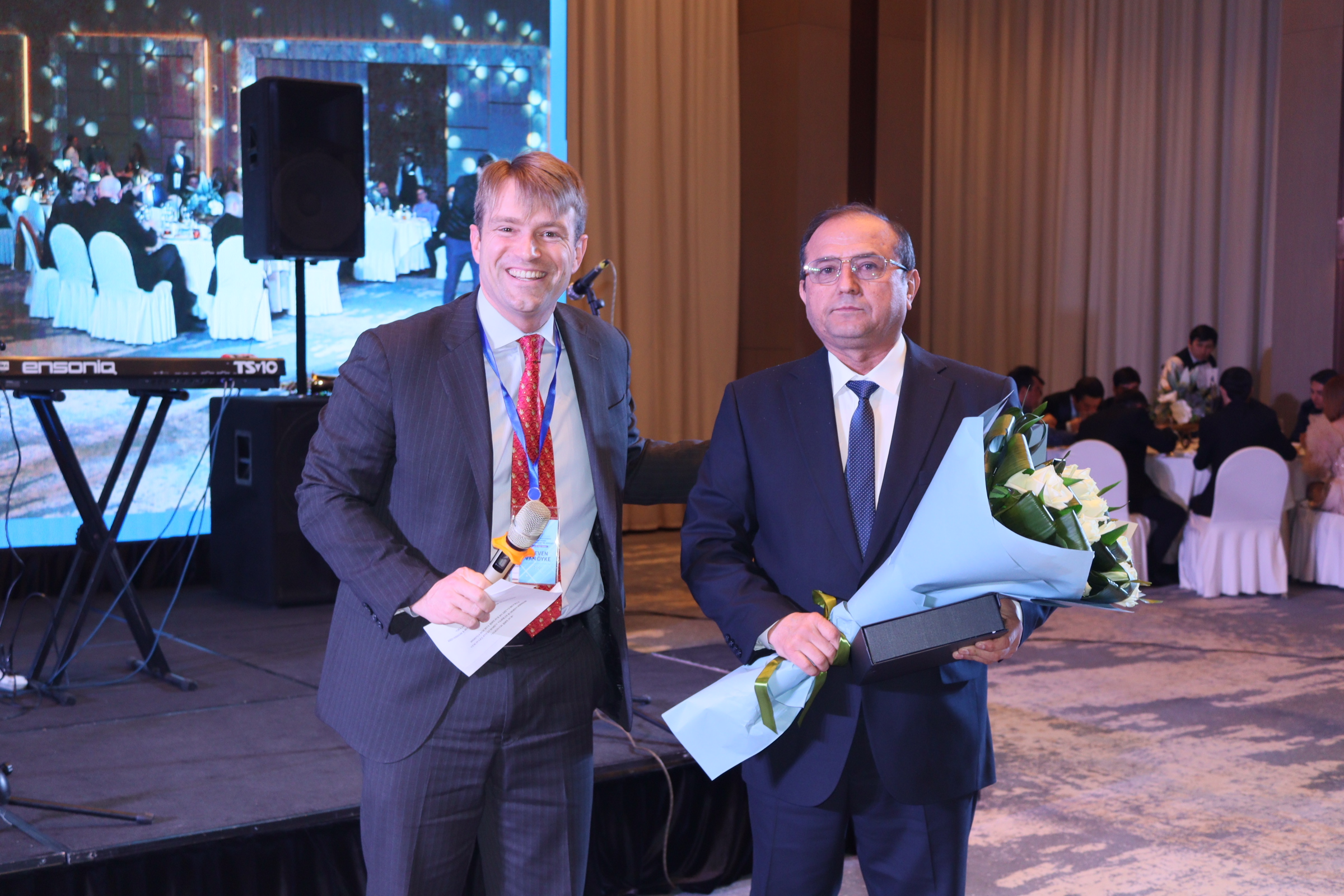
- Why do you think you were selected as a winner?
I see many problems with the legal system right now. For example, when someone is accused, investigative processes are conducted with the approach that the person is already guilty. It means you are guilty until proven innocent. I believe this is the wrong approach. A person is innocent until proven guilty. This is very biased in favor of the prosecution, creates a great challenge for lawyers, and disturbs the balance of justice in the defense of a person.
One of the most important achievements of my career is 21 acquittals. One thing I am particularly proud of is a case in Surkhandarya, where a person under my protection rented land for use. They planted trees there to conserve water on the ground. According to the lease, anything created or built on the land was considered their property. But after they cut down the trees, the environmental committee filed charges against them, and the case got complicated, and went all the way to the Supreme Court. Two years later, I was able to obtain an acquittal for my client. - Why did you choose to become a lawyer?
I worked in certain positions in the prosecutor's office and I was also an investigator, but I see myself as a lawyer. Helping my client, restoring their dignity, and even giving them back their life is the most honorable thing for me. That is why I chose this profession. - What is the most challenging part of your job?
Personally, the hardest things for me are when lawyers make reasonable motions at trial and the motions are denied without any intelligible or legal justification. For example, we present certain evidence, ask for additional medical examination or file a motion, but the court rejects it without explanation. It’s disappointing, of course. This is one of the reasons why the adversarial system does not work in Uzbekistan. We are not equal to the prosecution. Courts and investigative bodies are not independent as defined by law. True, the court should take into account the interests of the state, society, and the justice system, but the interests of ordinary people should not be left out. Unfortunately, this issue is now one of the major problems.
Another issue that I find difficult as a lawyer is the sometimes-unreasonable procedural deadlines. Courts are very sensitive to procedural deadlines, as a result of which the accused can remain in prison for a long time. In my opinion, more attention should be paid to verifying evidence, taking statements from witnesses, and so on, as these procedures help the judicial process and reaching the verdict. But instead, we have unreasonable deadlines imposed on existing procedures. As a result, time is wasted. With the recent decision of the President to improve the judicial system, some of these problems have been resolved. - How do you think your job impacts society?
I see my contribution to society as helping my clients achieve justice. With my help, when people under my protection return to their families, their confidence in the system increases. - What would you do to make the lawyer’s profession more attractive for young people?
I think we can do this by promoting the hard work that lawyers do, highlighting our achievements as advocates, and making the public more aware of it. We need to raise the profile of the legal profession.


